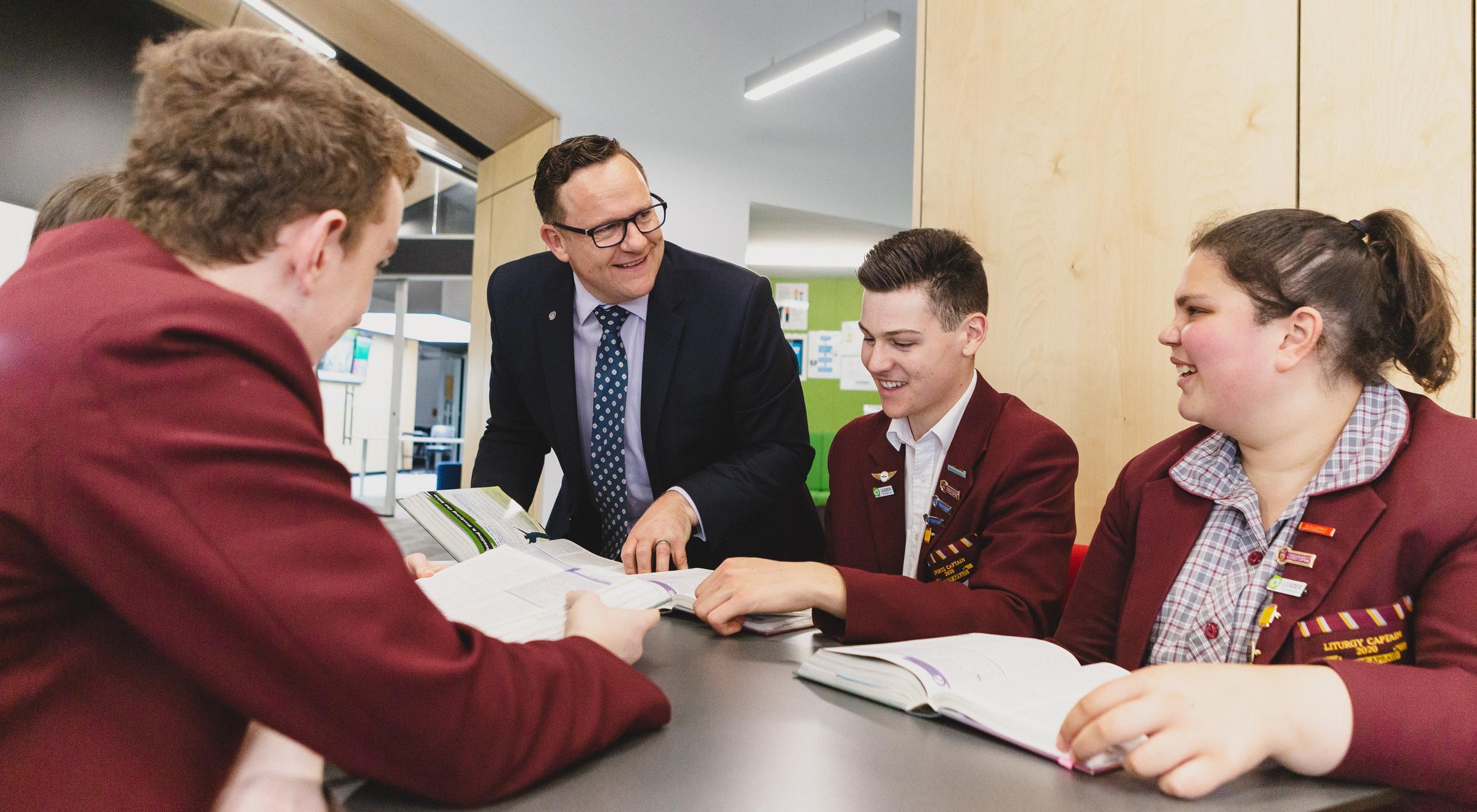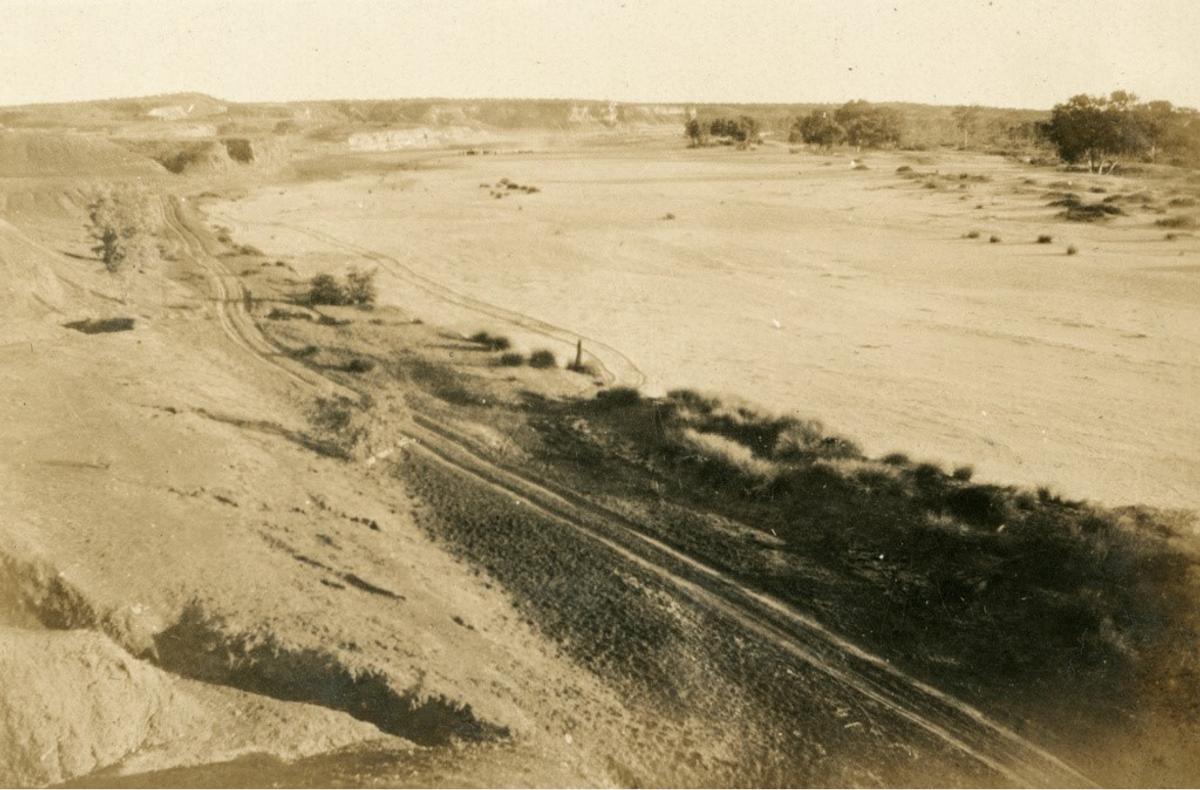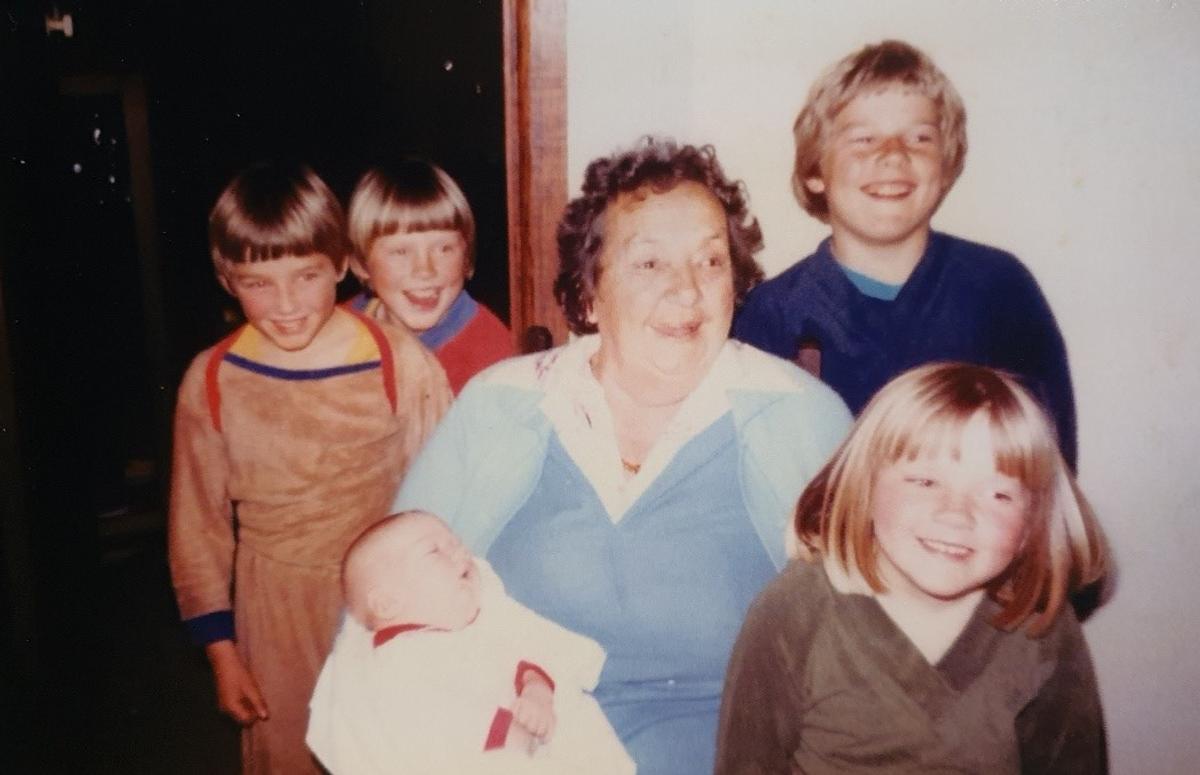Cranbourne Campus News

Reconciliation Week ~ a part of my story
Larapinta (in the Northern Territory) also known as the 'Finke River', is geologically known
to be the oldest river in the world. Interestingly, the river only has running water a few days a year and soon after it rains the water is absorbed into the red earth. The local Indigenous - Arrernte (also known as Aranda) people speak of the name 'Larapinta' as a word related to Arrernte for 'snake' and tell of the river emanating out of the great Rainbow Serpent of the Aboriginal Dreamtime, however there is also evidence of the name relating to the Arrernte word for 'salt', as a number of very salty water holes are dotted along Larapinta. Whichever definition is taken, the river is significant to the story of the Arrente people of central Australia.
Larapinta holds a special place in my story also. On 22 June 1955 a Lutheran missionary and anthropologist, Dr Carl Strehlow, sat on the banks of Larapinta at a Homestead Station called 'HorseShoe Bend' (150kms off the Stuart Highway and 300km out of Alice Springs) and dared to ask a local Indigenous woman, Victoria Stoneham, about her story. In 1955, such respect for the story of our Aboriginal people was unheard of but it would appear Strehlow was one of the 'good' ones.
Victoria proceeded to share her family story with Strehlow inclusive of six generations of her family, all of which Strehlow documented and is now stored in the research centre named in his honor in Alice Springs. Victoria's story included the proud moment of the role her father played in erecting the Nine Mile Creek fence in the Centre but it also included the pain of having one of her baby daughters stolen from her arms and shipped overnight from Larapinta NT to Mornington Vic where it was believed, by the well meaning authorities of the time, that she might have a chance of becoming ' civilized', presumably because her skin tone was more fair than that of her siblings.
That baby was my nan and Victoria, my great grandmother.
My nan's own childhood story is one of repressed memories, and a guilt that meant it was more palatable to those she met, for her to call herself an orphan rather than an Aborigine. I can't imagine how difficult it was for her growing up at a time of such misunderstanding and her deep feelings of dislocation. As a teen growing up, I was more interested in what cakes nan had baked for our school lunches and how much pocket money we'd get for cleaning her gutters, than in learning her story and how it might inform my story or that of my own girls.
Since becoming an adult I have on a couple occasions visited the Hermannsburg Mission that Carl Strehlow set up, my brother lived and worked on country, many of my cousins have since returned to the country and before he passed away, my Dad with Mum got to sit on the banks of Larapinta at Horseshoe Bend and shed the tears that nan had never been given the chance to do.
You see, Victoria Stoneham and her other children were still alive when nan learned of her living family and of being stolen from Horseshoe Bend. However, times were different in the 1960's and people still treated our Indigenous brothers and sisters as second class citizens (Aboriginal people were only counted as part of the Australian population in 1967!) and somewhat tragically, nan's husband, my dear old pop, forbade his wife from ever contacting her family while he was alive. I will never understand whether pop was acting from a position of ignorance or protection, but I do think it unfair to judge my pop with the mind of an educated man of the 2000's ~ sadly it is just another chapter in the tragedy of my nan's story and generally in the story of many of our first nation's people; of the way our Indigenous brothers and sisters have been, and often continue to be, treated.
I guess I tell my nan's story because she was never afforded the chance to. And equally, I say 'sorry' because I think that in the wisdom of hindsight, that is what pop would have wanted to say to the woman he loved as a soulmate for over thirty years.
All of us have a story - the foundation upon which we grow. Some are similar stories of dislocation, others of stereotyping, others of loss, persecution and hardship and others of happiness and hope. I guess during Reconciliation week we get a chance to reflect, especially on making some inroads into healing of the pain caused to our Indigenous brothers and sisters.
Our first step in that long journey to healing is, quite possibly, to be open to listening to each other's story.
Mr Jeremy Wright
Deputy Principal - Head of Cranbourne Campus



